Are We Moving Yet? The Risk of Climate Progress Becoming Climate Chatter














A quiet stand-off has defined much of the UK’s recent climate landscape. Businesses have spent months pointing to government inaction as a reason for delay. Governments, in turn, have insisted they’re “listening to business” – through consultations, frameworks, and discussion papers. Now, with a new wave of official documents released, you’d be forgiven for thinking the stalemate is breaking.
But is this real progress – or just the illusion of it?
The UK government’s recent 2025 “sustainability disclosure package” has caused a stir across industry and advisory circles. On paper, it’s a landmark moment: the clearest signal yet that corporate climate disclosure and transition planning are set to become mandatory, structured, and regulated. There’s no question that this is a step forward.
But step forward from what, and to where? Understanding the substance of these consultations – and whether they truly move us past the current cycle of hesitation – requires a closer look.
What’s Just Happened – and Why It Matters
In July 2025, the UK government published three long-awaited consultation documents:
UK Sustainability Reporting Standards (UK SRS): The proposed backbone for future climate and sustainability disclosures. Based on the global ISSB standards, the UK SRS aims to set out what companies must report on, and how, across climate risk, governance, strategy, and metrics.
Transition Plan Disclosure Requirements: A roadmap for requiring large companies and financial institutions to publish credible climate transition plans. These plans will need to align with the UK’s official Transition Plan Taskforce (TPT) framework – but the government is still deciding how and when to mandate this.
Assurance of Sustainability Information: A push to explore whether – and how – third-party assurance (i.e. auditing) should be introduced for climate and sustainability disclosures, much like financial reports today.
Together, these proposals offer a vision for a regulated, transparent, and comparable climate disclosure landscape in the UK. They are the clearest attempt yet to move from voluntary good practice to legal obligation.
And they’ve prompted intense commentary – from lawyers, consultancies, business groups, investors, and NGOs. Some of it insightful. Much of it circular.
Progress or Prolonged Pause?
This is not a nothing moment. These consultations show that climate policy is evolving. But evolution is not the same as execution. Each consultation is a step towards greater clarity – but also a reminder that we’re still in design mode.
Consultations are, by nature, cautious. They seek input. They float options. They stop short of drawing lines in the sand. And while that’s appropriate for complex regulation, it can also leave businesses unsure whether action today will still be relevant tomorrow.
The risk is that this “structured ambiguity” becomes a new normal – where signals are everywhere, but certainty remains elusive.
Yes, the government is engaging. Yes, frameworks are maturing. But the message to business is still: “Watch this space.” And the message from business remains: “We’ll move when you move.”
The Chatter Conundrum
If you work anywhere near climate or corporate reporting, you’ve likely read a dozen takes on these consultations in the past fortnight. That includes this one. The consultancy ecosystem has responded with its usual energy: explainers, webinars, roadmaps, service offerings.
But there’s a growing risk here, too. The volume of content can give the illusion of clarity and momentum – without actually increasing either.
Are we helping clients move forward? Or are we collectively fuelling a kind of professionalised ambiguity, where frameworks are endlessly parsed, but rarely internalised?
At its best, this advisory moment is about translation – helping companies understand what these changes mean and how to respond. At its worst, it’s noise dressed as insight.
Still Waiting on Each Other
Even with these updates, the dynamic between government and business hasn’t fundamentally changed.
Businesses are still couching ambition in conditional language: “We’ll decarbonise – if policy supports it.” Transition plans, rightly encouraged to flag dependencies, can morph into lists of reasons why progress isn’t yet possible. A 2025 survey during London Climate Action Week found that 94% of UK business leaders ranked supportive policy as a top enabler of climate delivery. In other words: still poised – but still waiting.
Government, meanwhile, continues to gather input. That is not a failing – good regulation should be shaped by those it affects. But consultation-heavy processes carry their own risks. The more government listens without legislating, the harder it becomes to tell where engagement ends and avoidance begins.
The result is a careful balancing act that increasingly resembles stasis.
Why This Matters
In climate and capital, timing matters. Investment flows where there’s clarity. Innovation follows stable expectations. The longer government hesitates to define the rules, the longer businesses hesitate to act – and vice versa.
And this mutual waiting is not passive. It is a choice. One that may be comfortable now, but will become increasingly difficult to reverse.
What we risk is not overt failure – but drift. Drift into a space where consultation becomes an end in itself, and transition planning is always preparatory. Where progress is proclaimed, but rarely enacted.
Moving Beyond the Loop
So what does it take to shift from signals to substance?
Government must move from possibility to policy. Consultations must lead to commitments. That means mandating the UK SRS, clarifying assurance requirements, and setting clear expectations for transition planning. Not perfectly – but soon.
Businesses must stop treating policy ambiguity as a full stop. Dependencies matter – but they can’t become excuses. Early action, pilot projects, and clear internal positioning are still possible, even in the face of regulatory uncertainty.
Advisors must focus on clarity, not volume. We don’t need more content. We need better content. Simplified guidance. Honest assessments. Strategic translation, not semantic analysis.
Conclusion: Don’t Mistake Chatter for Change
The new wave of UK climate consultations marks real progress. But it doesn’t yet guarantee delivery. If we celebrate this moment as a breakthrough, without holding space for what hasn’t happened yet, we risk confusing activity for acceleration.
We are moving. But slowly. And the path from talk to action is not yet secure.
The challenge now is to ensure that consultation leads to clarity, clarity leads to confidence, and confidence leads to action. Otherwise, we’ll spend the next few years lost in loops – listening, planning, refining – while the climate clock ticks on.

Get in touch
Share with visitors how they can contact you and encourage them to ask any questions they may have.


